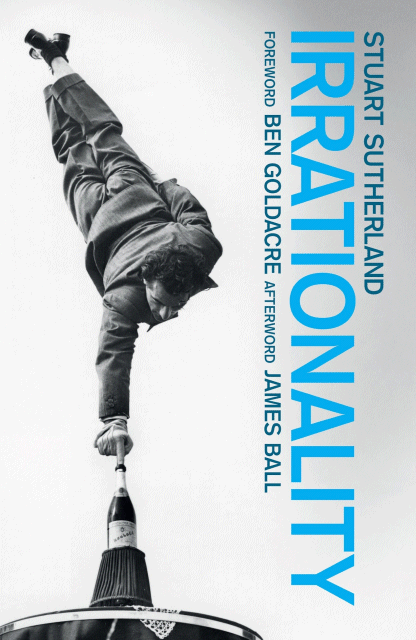Linked-In and other pep talks only tell you half the truth.
Many articles on LinkedIn are just
disguised pep talks. These LinkedIn articles, and other self help
courses, have titles like:
- 10 ways to become a successful manager.
- 5 methods to get rich quick.
- 7 habits of highly successful people
I read "Irrationality, the enemy
within" by Stuart Sutherland many years ago. It is such a good book it has been reissued:
In it he tells the story of a doctor
who prescribes a new medicine to a patient and the patient gets
better. The doctor concludes that the medicine works. The problem is
not only was that just a single case, but the doctor has no
information on the other 75% of outcomes. The whole 100% is as
follows:
- I prescribe the medicine and they get better.
- I don't prescribe the medicine and they get better (anyway).
- I prescribe the medicine and they get worse (anyway).
- I don't prescribe the medicine and they get worse.
What the pep talks tell you are point 1
above, and sort of hint at point 4. They leave out information about the outcomes described in points 2 and 3. So at most they tell you 50% of
the story.
And some invented figures:
If the figures above were true then it
would be better not to follow the pep-talk advice. But we never get
these figures, we only get the success figures. (But consider how
many people win olympic medals compared with the number of
competitors. I wonder how many losers had the same training as the
winners...?).
Here's one by someone who can't spell and does not check his work.





Comments
Post a Comment